
Any building or house needs a better wiring system to ensure safety and reliability and choosing the right Electrical Wiring Pipe is necessary. There are many electrical wiring pipe types and every type has their own advantages as well as uses. Let’s explore some of the common electrical wiring pipe types to understand their characteristics and advantages.
Electrical Wiring Pipe Types
1. PVC Conduit
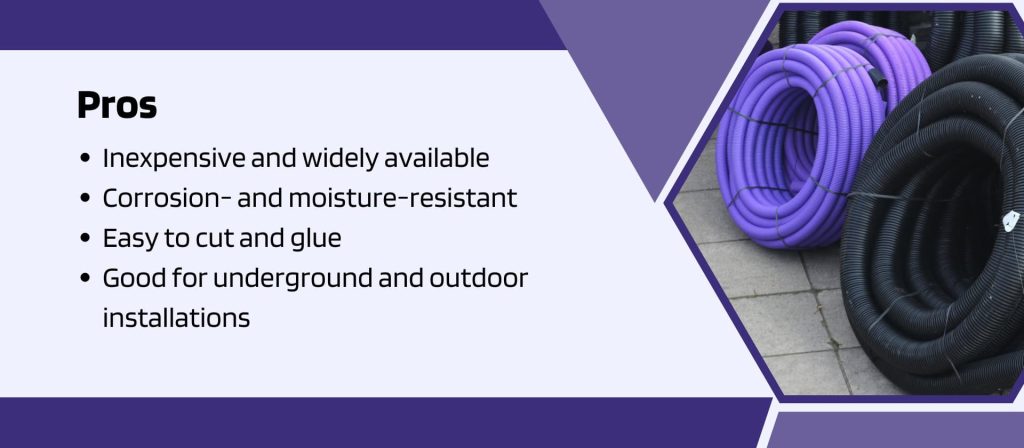
PVC Conduit is one of the widely used wiring pipes for installations in residential and commercial projects. It has its own advantages like being lightweighted, corrosion resistant, moisture resistant, and easy to install. It is best used for underground wiring. Although it requires separate grounding conductors because of its non-metallic element.
2. EMT (Electrical Metallic Tubing)
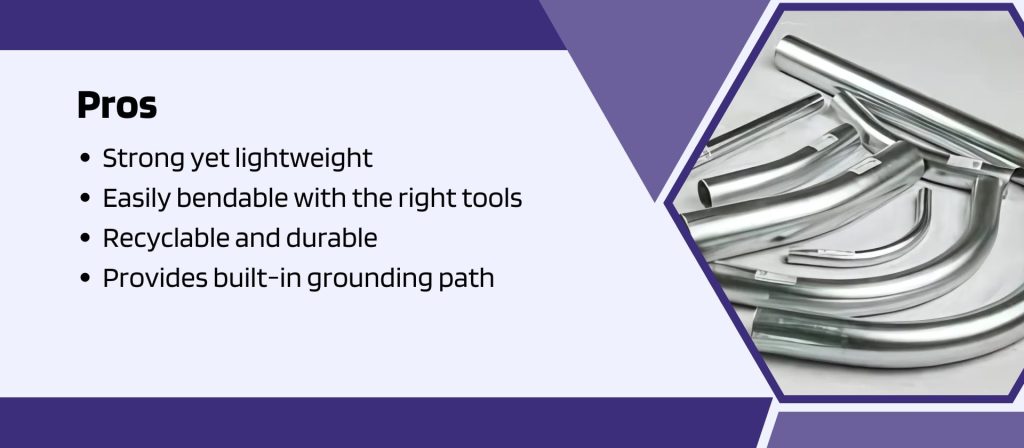
EMT (Electrical Metallic Tubing) is often used for its light weighted nature and flexibility. It is used for commercial and residential installation for low voltage. It is made of galvanized steel or aluminum. It offers strong mechanical protection for wires. It is used in indoor applications and is not ideal for a wet environment.
3. Flexible Metal Conduit (FMC)
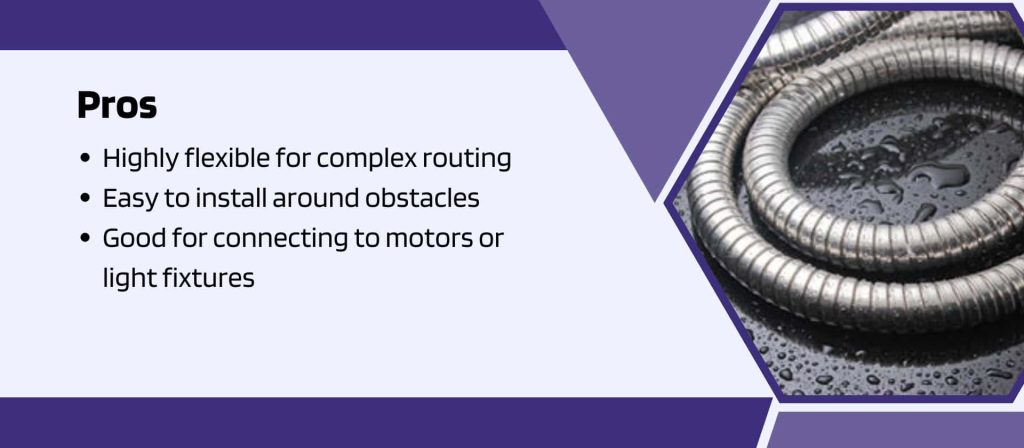
Flexible Metal Conduit (FMC) is best used when there is a need of bendable and easy to apply. It is one of the best electrical wiring pipe types. It is made of interlocked metal bands. It is a spiral-wound metal conduit. It is better for tight spaces and connections to appliances & machines. It is not waterproof, and it needs to be a liquid-tight version (LFMC) for damp locations.
4. Rigid Metal Conduit (RMC)
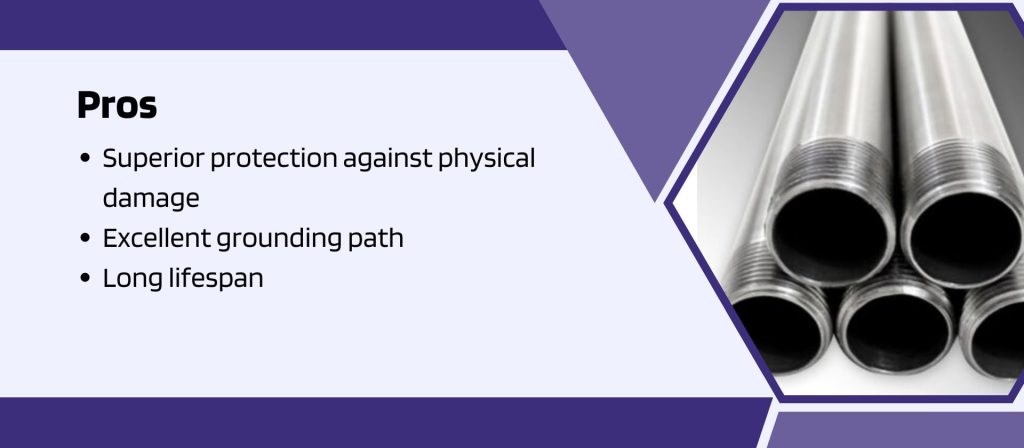
Rigid PVC Conduit comes under the electrical wiring pipe types that are not made of metal. It is made of heavy-duty galvanized steel and is used for outdoor & industrial applications. It is usually heavier in weight and is more expensive. It is difficult to bend but is used for protecting wires from light damage. It is also easy to install.
5. Intermediate Metal Conduit (IMC)
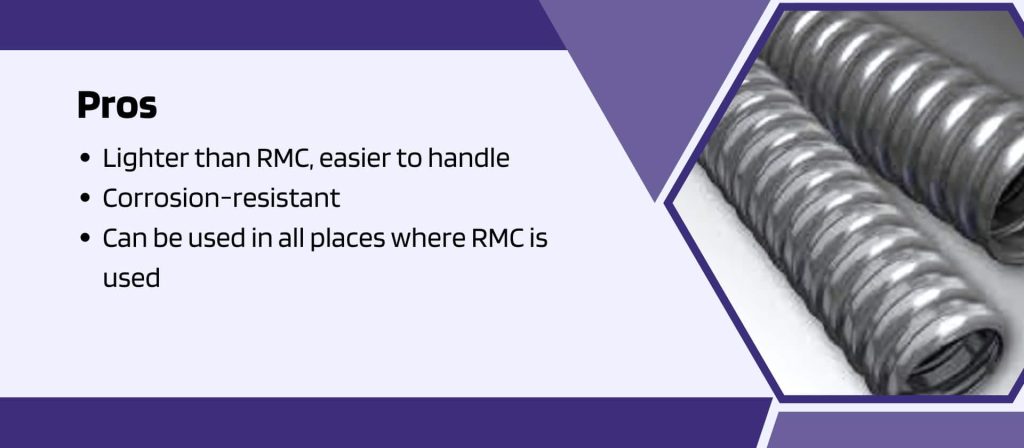
Intermediate Metal Conduit (IMC) is a thin metal electrical wiring pipe types. It is lighter in weight (Lighter than RMC) but offers solid protection. It’s made from steel and coated with a corrosion-resistant material. It can be best used for commercial and industrial environments.
6. Liquid-Tight Flexible Conduit (LFMC)
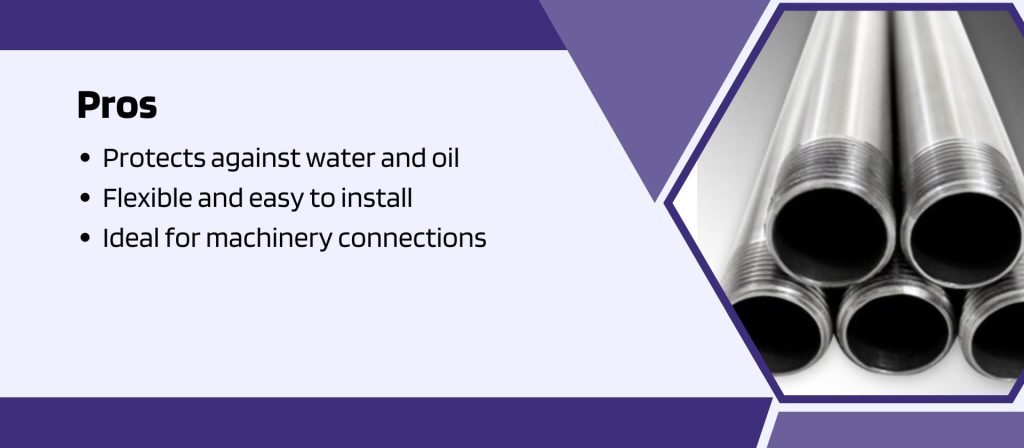
Liquid-Tight Flexible Conduit (LFMC) is one of the best electrical wiring pipe types as it is covered with a waterproof plastic coating. It is best suitable for wet and outdoor surroundings (exposed to sun) like HVAC units, pumps, boatyards, cranes, etc.
Conclusion
All of the electrical wiring pipes types have their own advantages and disadvantages. You can prefer any keeping in mind the environment and application. Be it a residential home or commercial or industrial facility, you can make sure to use safer and reliable wiring pipes. So, if you are someone looking for different types of electrical wiring pipes above mentioned are some of the types but there are many more electrical wiring pipe types.
Also Read: Top 50 Electrical Cable Suppliers in Bangalore (April 2025)
FAQs
1. What is the best type of electrical wiring pipe for residential use?
PVC conduits are commonly used in residential installations due to their affordability, moisture resistance, and ease of installation.
2. Is EMT conduit suitable for outdoor use?
Standard EMT is not ideal for outdoor or wet environments unless it’s specially coated. For outdoor use, consider RMC or LFMC.
3. What’s the difference between RMC and IMC?
RMC (Rigid Metal Conduit) is thicker and heavier, offering maximum protection, while IMC (Intermediate Metal Conduit) is lighter but still durable and corrosion-resistant.
4. Can Flexible Metal Conduit (FMC) be used in wet locations?
FMC itself is not waterproof. For wet or damp locations, you should use LFMC (Liquid-Tight Flexible Metal Conduit), which is coated for moisture protection.
5. Do PVC conduits require grounding?
Yes, since PVC is a non-metallic conduit, it doesn’t conduct electricity and requires a separate grounding conductor for safety.







